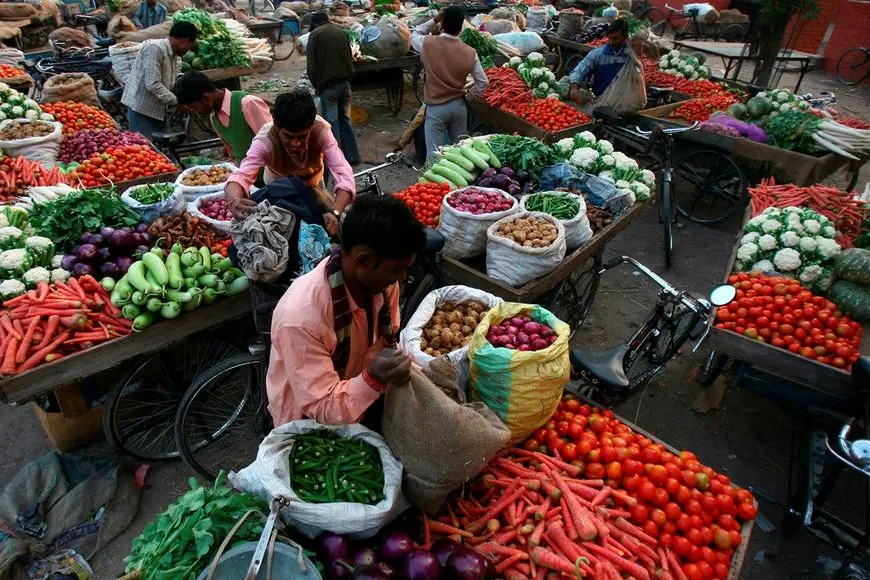PHOTO
A steeper-than-expected surge in the prices of vegetables, especially tomatoes, over the past few weeks could push India's retail inflation towards 5.5% in the July-September quarter, at least three economists said.
The country's inflation eased to between 4% and 5% in April and May, inching towards the central bank's 4% target, and likely held below 5% in June as well, partly due to a supportive base, data due Wednesday is expected to show.
However, if the spike in vegetable prices sustains, it could push July inflation towards 6%, said Gaura Sen Gupta, an economist at IDFC First Bank.
Vegetable prices, on a consumer price index (CPI)-weighted basis, are up 34% so far in July, after rising 18% in June, said Sen Gupta, based on data provided by the National Horticulture Board.
Tomato prices, in particular, surged 160% month-on-month in the first week of July, IDFC First Bank Economic Research data showed, due to unseasonal rains and crop damage in certain parts of the country.
Even McDonald's has stopped using tomatoes due to quality and price concerns.
Even if prices start to cool off, inflation could hit 5.5% over July to September, Kaushik Das, Deutsche Bank's chief India economist, said in a note on Friday.
That is marginally higher than the 5.2% forecast by the Reserve Bank of India.
"While tomato prices have already increased sharply due to weather disruptions, other food items are also on the rise and the cumulative impact of these may be felt more in July than June," Das wrote.
Nomura's economists expect inflation to average around 5.5% over July and August and while that will not force a rate hike, they expect it will keep monetary policy tight.
"Monetary policy is likely to focus more on underlying inflation than an outlier," economists Sonal Varma and Aurodeep Nandi said in a note last week.
"But a vegetable price-driven surge in the headline CPI could increase the policy trade-offs and risks delaying the first cut."
RBI Governor Shaktikanta Das has maintained that the pause in rate hikes over the past two meetings should not be seen as a pivot as the disinflation process will be protracted.
(Reporting by Ira Dugal; Editing by Savio D'Souza)





















